
Welcome to Maoxian Station !
The Maoxian Mountain Ecosystem Research Station of Chinese Academy of Sciences was established in 1986, as a member of the Chinese Ecosystem Research Network (CERN), and is located in Fengyi Township of Maoxian County, Sichuan, China (103°54′E, 31°42′
N, Alt. 1826 m).
|
|
Natural Conditions
The Station is situated in the upper reaches of the Minjiang River (an important tributary of the Yangtze River) and north of the Hengduan Mountains in the east part of the Qinghai- Tibetan Plateau.This region is the transitional area from first class ladder to second ladder based on the big topography of China. It is also a representative region of very fragile high mountains and deep valleys in the east part of the Qinghai-Tibetan Plateau and the upper reaches of the Yangtze River, with a difference in elevation more than 3000 m.The vertical distributions of vegetation and climate are found very obvious there. The region belongs to the typical temperate climate with annual sunshine time of 1373.8 hours, annual mean temperature 9.3℃, annual precipitation 825.2 mm and annual evaporation 968.7 mm. In the area of the station, the major soil types are brown soil and cinnamon soil. The vegetation mainly consists of artificial forests and secondary shrubs. The Qiang people live in the region.
|
|
|
|
|
Mountains & gorges |
Dry Valley |
Village of Qiang people |
Developmental Objectives
The Station will be built as a well equipped monitoring and research base with international standards, a demonstration base for scientific and technological research results, and an open training center for researchers and students both from China and abroad.
Research Topics
Structure and function of mountain forest ecosystem;
Degradation mechanism and rehabilitation of mountain forest ecosystems;
Sustainable development and conservation of plant resources and biodiversity;
Effect of subalpine forest ecosystems on global climate change.
Experiment Conditions
Experimental area
The total experimental area of the station is about 68 hectares, including a meteorological station, six long-term observation fields, as well as a lab of about 250 m2 with sophisticated equipment.
|
|
|
|
|
Experiment area |
Pine forest |
Spruce |
|
|
|
|
|
Shrubs |
Vegetation of Dry Valley |
Laboratory |
Gardens of Germplasm Resources
The Station possesses many kinds of gardens for plant germplasm, such as rose, yam, maple, sea-buckthorn and yew, providing a basic condition for the research and development plant resources.
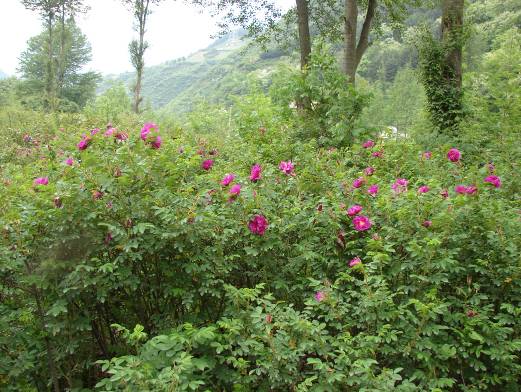 |
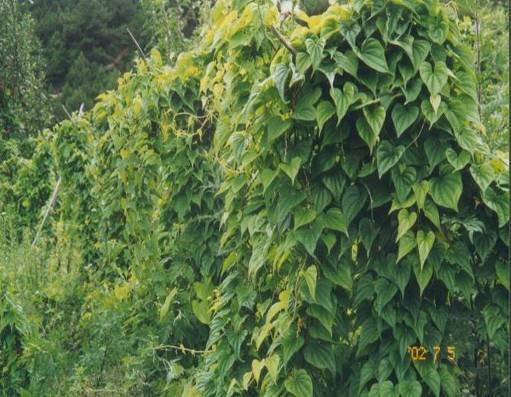 |
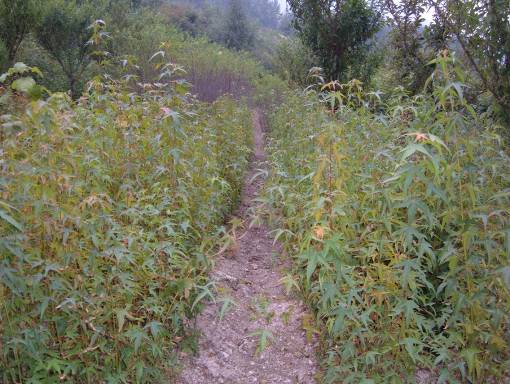 |
| Rose garden | Yam garden | Maple garden |
Accommodations and Communication
The station is 220 km to Chengdu and 5 km the County Town of Maoxian, and very close to the Moaxian-Beichuan Road.
The station possesses a multi-functional and well equiped building of 1025 m2 for accommodations, meetings and entertainment.
 |
 |
 |
| Living and work area | Guest rooms | Meeting Room |
Achievements
From 2001 to 2006, the researchers of Maoxian Station published more than 200 scientific papers, 7 monographs, and put forward some new suggestions, methods and ideas for ecological restoration and rehabilitation, which have enriched the basic theories of ecological reconstruction.
Demonstration
The Station has set up demonstration area of more than 1500 ha. and jointly built a breeding base for yew with local government.
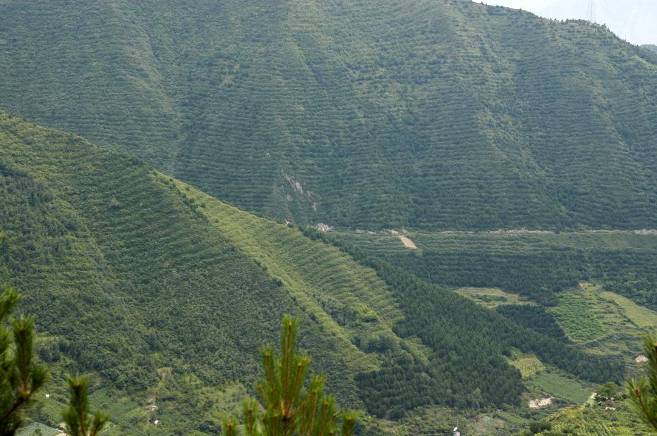 |
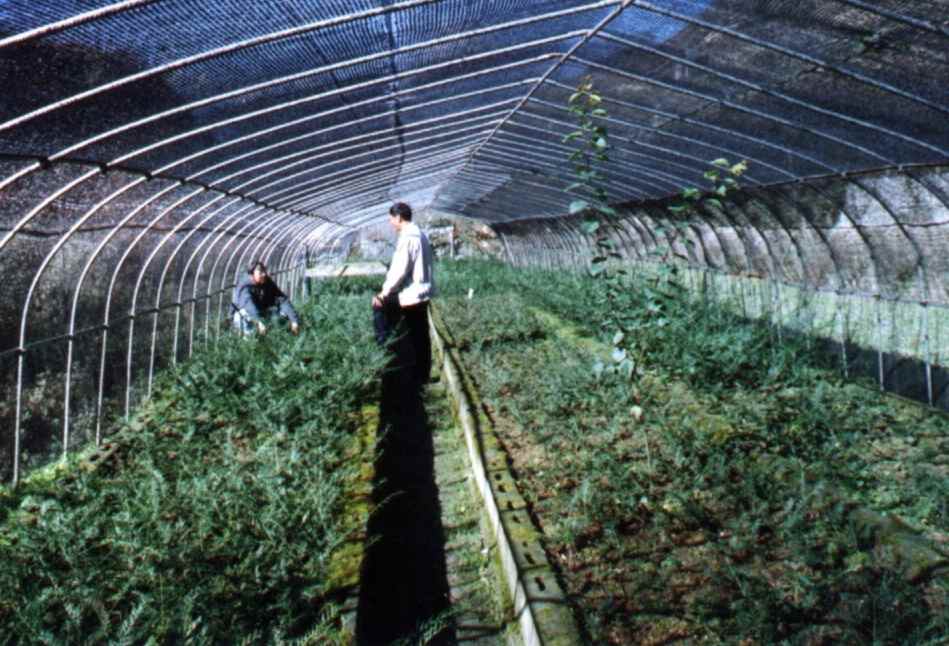 |
| Demonstration area | Breeding base for yew |
Cooperation and Inspection
The Station is also a research base both for researches from the institutes and universities in China and abroad. It has received many researchers from different countries, such as the US, Finland, Germany, UK and Japan.In recent years, many leaders of the state, provinces and the Chinese Academy of Sciences have visited the station, and they highly spoke of the researches carried out by the station.
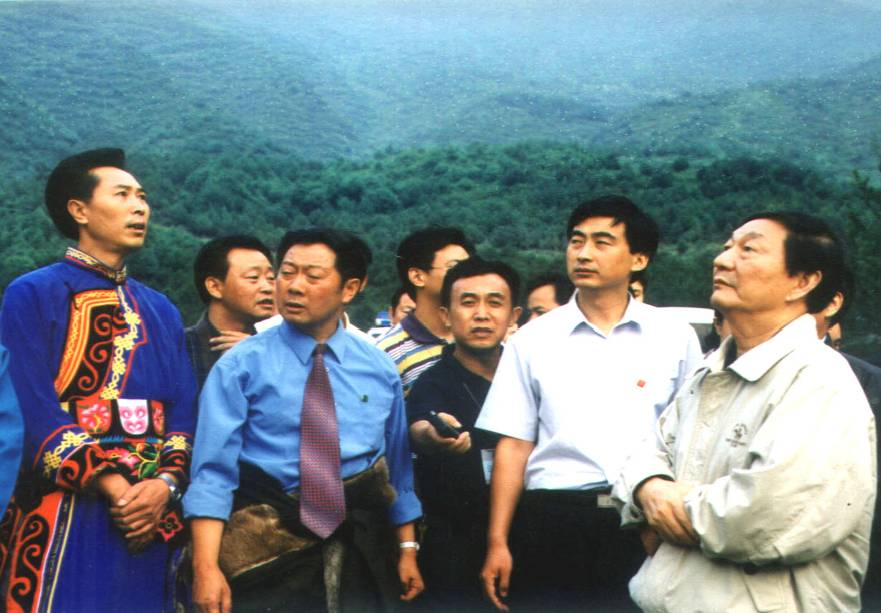 |
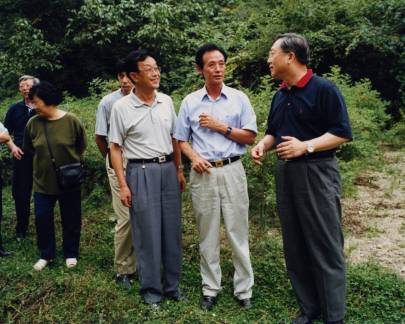 | |
| Former Premier Zhu Rongji | Academician Lu Yongxiang |
 |
|
Epigraph of CAS president Lu Yongxiang |
Maoxian Mountain Ecosystem Research Station, Chinese Academy of Sciences
Station Location: Fengyi Town, Maoxian County,Sichuan Province , China
Director: Dr. Bao Weikai
Sponsored by: Chengdu Institute of Biology, Chinese Academy of Sciences
Post address: P.O. Box 416, Chengdu, P.R. China
Post code: 610041
Tel: +86 28 85252662(Chengdu)
+86 837 7423206(Maoxian)
Fax: +86 28 85222753
E-mail: baowk@icib.ac.cn
